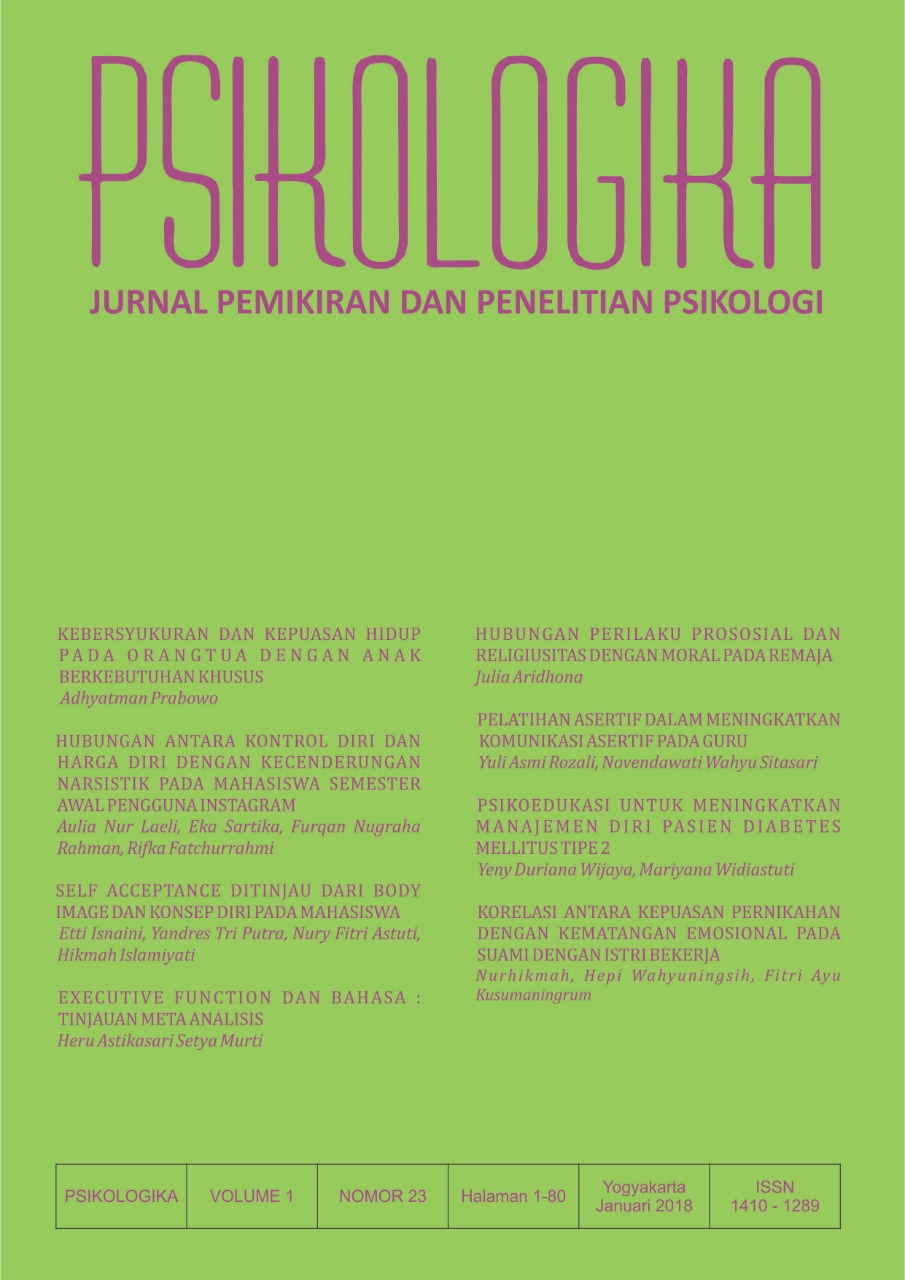Main Article Content
Abstract
Every parents hope to have children born perfect, both physically and mentality. However, some children are born with disability physically or mentality that is called child with special need. The purpose this research is understanding and explaining relationship between gratitude and life satisfactions parents who have child with special need. The methodology used correlational quantitative methods. The subject of this research is parents who have child with special need and stay in Malang. The method of sample is used cluster sampling method and collected data through Satisfaction with Life Scale (SWLS) is constructed by Diener, Emmons, Larsen and Griffin (1985) that was consisted of five items with Alpha coefficient 0,710 and The Gratitude Questionnaires Six Item Form (GQ-6) in the form of Likert Scale is constructed by McCullough et.al (2002) that was consisted of six items with Alpha coefficient 0,765. While data analysis used the data analysis correlation the Pearson’s Product Moment correlation. The result of this research showed a significant correlation between gratitude and life satisfaction (p = 0,000; p < 0,001) with score of correlation’s coefficient 0.470. Thus, this means that gratitude is positively correlated with life satisfaction. This finding will be discussed later in this paper.
Article Details
Authors who publish with this journal agree to the following terms:
- Authors retain copyright and grant the journal right of first publication with the work simultaneously licensed under a Creative Commons Attribution-ShareAlike 4.0 International License that allows others to share the work with an acknowledgment of the work's authorship and initial publication in this journal.
- Authors are able to enter into separate, additional contractual arrangements for the non-exclusive distribution of the journal's published version of the work (e.g., post it to an institutional repository or publish it in a book), with an acknowledgment of its initial publication in this journal.
- Authors are permitted and encouraged to post their work online (e.g., in institutional repositories or on their website) prior to and during the submission process, as it can lead to productive exchanges, as well as earlier and greater citation of published work (See The Effect of Open Access).




